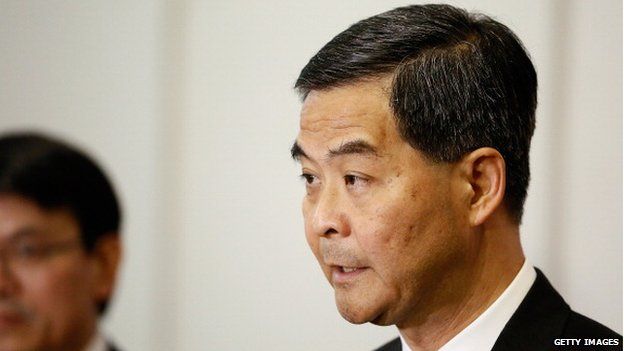By Christine Khamis
Impunity Watch Reporter, Asia
HONG KONG, China —
Electoral reform allowing for a direct election of Hong Kong’s next chief executive is unlikely to be passed into law in a vote by Hong Kong lawmakers this week.
Hong Kong’s Legislative Council is expected to vote on the reform by the end of the week. The reform will become law if two-thirds of the Hong Kong Legislative Council approves it, but pro-democracy legislators have vowed to veto the reform. Pro-democracy legislators make up about one-third of the Legislative Council.
The reform, while a step forward in the realization of Hong Kong’s drive for a more democratic electoral system, only allows for a certain number of pre-approved, pro-Beijing candidates to participate in the election for Hong Kong’s next leader.
The current chief executive in Hong Kong, Leung Chun-ying, supports the reform proposals and has stated that Hong Kong should pass the election reforms into law and then work to improve on the new electoral system.

The Chinese government has pledged to establish direct elections of Hong Kong’s chief executive by 2017. Currently, a 1,200 member committee comprised primarily of pro-Beijing individuals chooses Hong Kong’s chief executive.
Hong Kong is a former British colony that was returned to China in 1997 through an agreement between Great Britain and China. When China gained sovereignty over Hong Kong, it was under a “One Country, Two Systems” model that gave Hong Kong a separate legal system and freedoms of speech and press. As part of the “One Country, Two Systems” model, Great Britain and China agreed that Hong Kong would have a significant amount of autonomy for 50 years and that an electoral system supporting free election of leaders would eventually be developed.
Pro-democracy advocates argue that the proposals fall short of the democratic system that was promised when Hong Kong once again became part of China. Hong Kong’s mini-constitution, called the Basic Law, was established in 1997. The Basic Law calls for Hong Kong’s electoral process to evolve into a system in which voters elect a new chief executive from among other candidates selected by a committee with broad representation.
The National People’s Congress, the national legislature of the People’s Republic of China, set a timeline for the transition to democratic election of the chief executive in 2007. The National People’s Congress must, however, approve any changes to the Basic Law, including those concerning Hong Kong’s electoral system.
Supporters of the proposals say that the proposals are an improvement to the current system because Hong Kong’s citizens will be able to choose between multiple candidates. The chief executive position will have more legitimacy and will have to be elected by a majority of the voters.
When the reform proposals were first presented last year, Hong Kong broke out into mass protests. Pro-democracy activists occupied the streets in an effort to get authorities to approve open nominations of chief executive candidates, but were unsuccessful.
According to a poll conducted by a group of Hong Kong universities from June 11 through June 15, adults in Hong Kong favor the election reform proposal by a narrow margin.
Pro-democracy groups in China have stated that they will protest if the election reform proposals are passed.
For more information, please see:
CNN – Is Hong Kong’s Fight for Democracy in its Final Round? – 17 June 2015
New York Times – Hong Kong Lawmakers Begin Debate Over Election Plan – 17 June 2015
Reuters – Hong Kong Debates Election Reform Plan With Veto Likely – 17 June 2015
BBC – Hong Kong’s Democracy Debate – 16 June 2015
New York Times – Hong Kong Election Plan Appears Unlikely to Win Lawmakers’ Approval – 16 June 2015